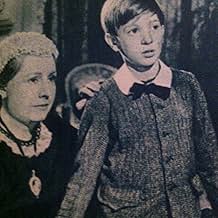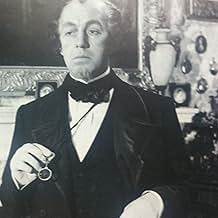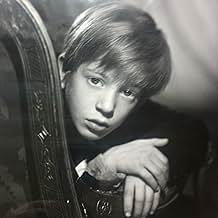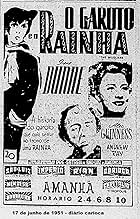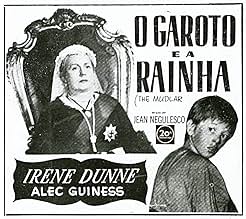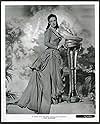IMDb RATING
6.9/10
1K
YOUR RATING
An urchin, scavenging on a bank of the River Thames, finds a cameo depicting Queen Victoria. So taken by her beauty, he is determined to see her and sets off for Windsor Castle.An urchin, scavenging on a bank of the River Thames, finds a cameo depicting Queen Victoria. So taken by her beauty, he is determined to see her and sets off for Windsor Castle.An urchin, scavenging on a bank of the River Thames, finds a cameo depicting Queen Victoria. So taken by her beauty, he is determined to see her and sets off for Windsor Castle.
- Nominated for 1 Oscar
- 2 wins & 1 nomination total
Nicholas Amer
- Servant
- (uncredited)
Pamela Arliss
- Princess Christian
- (uncredited)
Wallace Bosco
- MP
- (uncredited)
Michael Brooke
- Prince Albert
- (uncredited)
Ernest Clark
- Hammond
- (uncredited)
Joe Cunningham
- Member of Parliament
- (uncredited)
Patricia Davidson
- A Maid in Windsor Castle
- (uncredited)
Grace Denbeigh-Russell
- Queen's Maid
- (uncredited)
George Dillon
- Jailer
- (uncredited)
- Director
- Writers
- All cast & crew
- Production, box office & more at IMDbPro
Featured reviews
A fine film that is mainly forgotten but still worth seeing, it deals with a homeless boy in Victorian London (1876) who rubs shoulders with two of the leading figures of the time - Queen Victoria and Benjamin Disraeli.
A heart-warming story of historical fiction, directed by Jean Negulesco, it displays the formidable acting talent of Irene Dunne and Alex Guinness. Disreali's audience with the Queen at the start draws us into the main themes of the movie. Andrew Ray, as the boy, is exceptional. The great character actor Finlay Currie plays the role of the Queen's friend John Brown, a crusty, boozy Scot and a close companion of the Queen, who takes a personal interest in the boy. (The character of John Brown was also the subject of the movie from the 1990's - Mrs. Brown, played by Dame Judi Dench.)
The role of the mudlark-a child who scavenges on the banks of the Thames is played by Andrew Ray. It was while doing this,that he found a cameo of the Queen. Illiterate and poverty-stricken, he knows nothing about the Queen but when he finds out who she is, he wants to meet her. The discovery of the child during a banquet at Windsor Castle becomes a national story, in which the Prime Minister (Alex Guinness as Disraeli) uses the issue to underscore the need for social reform and to thus win support for his government's program. The speech in the House of Commons is a high point in the movie, as is the widowed Queen's encounter with the boy near the end of the film.
Colourful conversations between Alex Guinness (Disraeli) and Findlay Currie (John Brown) add sparkle to the film as does a well-lubricated Brown as he takes the boy on a tour of the castle.
At the end, Disraeli and Brown, totally different in character, are drawn together by their love of the monarch. The widowed monarch, at first alarmed by the boy's stealing into her private residence, is moved by a second encounter when she learns that he merely wanted to see her. This also suited the Prime Minister's purpose of giving the monarch confidence to come out of seclusion.
A heart-warming story of historical fiction, directed by Jean Negulesco, it displays the formidable acting talent of Irene Dunne and Alex Guinness. Disreali's audience with the Queen at the start draws us into the main themes of the movie. Andrew Ray, as the boy, is exceptional. The great character actor Finlay Currie plays the role of the Queen's friend John Brown, a crusty, boozy Scot and a close companion of the Queen, who takes a personal interest in the boy. (The character of John Brown was also the subject of the movie from the 1990's - Mrs. Brown, played by Dame Judi Dench.)
The role of the mudlark-a child who scavenges on the banks of the Thames is played by Andrew Ray. It was while doing this,that he found a cameo of the Queen. Illiterate and poverty-stricken, he knows nothing about the Queen but when he finds out who she is, he wants to meet her. The discovery of the child during a banquet at Windsor Castle becomes a national story, in which the Prime Minister (Alex Guinness as Disraeli) uses the issue to underscore the need for social reform and to thus win support for his government's program. The speech in the House of Commons is a high point in the movie, as is the widowed Queen's encounter with the boy near the end of the film.
Colourful conversations between Alex Guinness (Disraeli) and Findlay Currie (John Brown) add sparkle to the film as does a well-lubricated Brown as he takes the boy on a tour of the castle.
At the end, Disraeli and Brown, totally different in character, are drawn together by their love of the monarch. The widowed monarch, at first alarmed by the boy's stealing into her private residence, is moved by a second encounter when she learns that he merely wanted to see her. This also suited the Prime Minister's purpose of giving the monarch confidence to come out of seclusion.
Quite an under-stated classic with some superb film-noir scenes shot on the river-bank.
Mudlarks, scavengers for anything at all on the Thames' tidal mud-banks, were only one of the Victorian under-class of homeless, often orphan kids forced to scratch a living, some-how, or die without raising an eye-brow in the great metropolis. This film tells how one of these poor kids attempts to see "The Mother of the Country". Andrew Ray, who plays 'Wheeler' died in 2003. The rest of the cast can never quite out-act the young lad though Findlay Currie as the boozy, kind and understanding John Brown comes close.
Mudlarks, scavengers for anything at all on the Thames' tidal mud-banks, were only one of the Victorian under-class of homeless, often orphan kids forced to scratch a living, some-how, or die without raising an eye-brow in the great metropolis. This film tells how one of these poor kids attempts to see "The Mother of the Country". Andrew Ray, who plays 'Wheeler' died in 2003. The rest of the cast can never quite out-act the young lad though Findlay Currie as the boozy, kind and understanding John Brown comes close.
I saw the Mudlark when it first came out in 1950 and have not seen it since. I remember the Mudlark as a very charming film and would love to see it again. If anyone is aware of available Video Tapes (NTSC) or DVDs of the Mudlark, please let me know. I remember the stirring performances of Alec Guinness (always top rate) and Finlay Currie. The little boy who plays the role of the Mudlark is really endearing and you pull for him in his quest to see the reclusive Queen Victoria. Thy British film industry of that time certainly was able to come up with some real classics. The ten years following WW 2 must have been the pinnacle of British film. I can't understand how such a first rate film can just disappear...Jim Mills
This is one of those delightful post-war British films that once seen is hard to forget. The story centers around Wheeler, a London "mudlark" (an orphan who scavenges the Thames at low tide), who, upon finding a cameo of Queen Victoria, sets off to Windsor to see "the mother of England." Victoria is secluded as the "widow of Windsor" and a desperate Disraeli is vainly attempting to urge her to resume public duties. However, when Wheeler finally gets to meet his Queen, Victoria is moved to return to her public life. Wonderful performances by Irene Dunne as Victoria, Alec Guinness as Disraeli, Finlay Currie as John Brown and Andrew Ray as Wheeler, the mudlark. If only Fox would release this on DVD or VHS!
This is a slightly stiff rendition of an old story about a young scavenger who makes his living from the debris found by the river Thames in London. One day he happens upon a portrait of Queen Victoria and sets off to Windsor Castle (no small distance) to try and meet his Sovereign. Meantime the Queen (Irene Dunne) is still wallowing in grief following the death of Prince Albert and her Prime Minister Benjamin Disraeli (Alec Guinness) is trying to coax her from her melancholy before it is too late for both her and the monarchy. A combination of circumstances lead to an engaging and slightly humorous set of scenarios and the mudlark gets his wish. This film provides an interesting observation on just how detached the Queen was from all of her people, not just the poorest; and of how ultimately the demonstration of innocence and, to some extent, loyalty by the child - along with some sagely interventions from Finlay Currie's highland ghillie John Brown - served to bring the Queen out of her isolation. It also features quite a stirring - and potent - oration from Guinness analysing the poverty and injustice visited upon those whom the state regarded as dispensable. A touching and life-affirming little film well worth a watch.
Did you know
- TriviaAlec Guinness' speech to Parliament, in the role of Benjamin Disraeli, is delivered in an unbroken, single take of nearly seven minutes of impassioned dialogue.
- ConnectionsVersion of La reine Victoria (1937)
- SoundtracksSilent Night, Holy Night
(1818) (uncredited)
Music by Franz Xaver Gruber
Lyrics by Joseph Mohr
Sung by Carolers during the Christmas season
- How long is The Mudlark?Powered by Alexa
Details
- Release date
- Countries of origin
- Language
- Also known as
- The Mudlark
- Filming locations
- Production company
- See more company credits at IMDbPro
- Runtime1 hour 39 minutes
- Color
- Aspect ratio
- 1.37 : 1
Contribute to this page
Suggest an edit or add missing content

Top Gap
By what name was Le moineau de la Tamise (1950) officially released in India in English?
Answer
